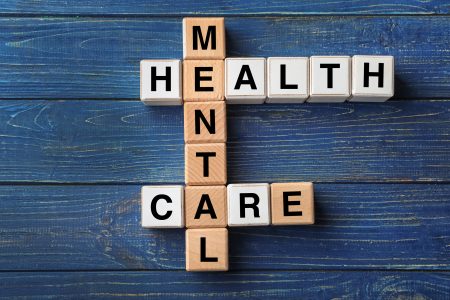Even before COVID-19 hit, our nation was already in the midst of a mental health crisis, with historic rates of overdoses and suicides devastating families coast to coast. The mental health implications of this pandemic could reverberate for years to come if not properly addressed. Most urgently, more people will need help due to isolation, grief, unemployment, and increased anxiety. And those with existing mental health and substance use disorders must be able to sustain treatment.
Today, The Kennedy Forum, joined by more than a dozen other leading advocacy groups, sent a request to Congressional leaders to include the following appropriations and policy changes in the “Phase 4” stimulus package, the latest round of relief legislation intended to support individuals and organizations during the COVID-19 pandemic.
- $38.5 billion in emergency funding to save existing treatment infrastructure.
- The National Council for Behavioral Health survey of its members estimates the Community Behavioral Health Organizations revenue could fall 50% over the next year – or approximately $38.5 billion. Urgent assistance is needed to maintain staff and keep their doors open. Funds could be used for expenses/lost revenue attributable to COVID-19.
- The National Council for Behavioral Health survey of its members estimates the Community Behavioral Health Organizations revenue could fall 50% over the next year – or approximately $38.5 billion. Urgent assistance is needed to maintain staff and keep their doors open. Funds could be used for expenses/lost revenue attributable to COVID-19.
- $10 billion in emergency funding to expand services for the COVID-19 response.
- $380 million for a 9-8-8 National Mental Health and Suicide Prevention Hotline, including $300 million to fund necessary upgrades and designation and $80 million for operations to handle call and crisis chat capacity.
- Maintain and enhance local crisis response by allocating $5.6 billion to the Substance Abuse and Mental Health Services Administration (SAMHSA) emergency fund to provide crisis/grief counseling and other mental health needs for health care professionals, first responders, grocery store employees, and others front-line workers.
- $1.5 billion to the Department of Housing and Urban Development (HUD) for homeless diversion including residential services for homeless individuals who are at increased risk from COVID-19.
- $1.2 billion to the Department of Justice (DOJ) for jail diversion programs to lessen crowding in corrections facilities and the strain on state and local budgets.
- $500 million to the National Institute of Mental Health (NIMH) for brain research.
- $800 million to the Health Resources and Services Administration (HRSA) for emergency workforce development, including but not limited to immediately increasing slots and paying for training for psychiatrists, psychologists, social workers, licensed mental health professionals, and certified peer specialists.
- Access to equitable overage
- Guarantee patient access to telehealth by requiring all health insurance plans, including all Employee Retirement Income Security Act (ERISA) plans, Medicare, and state Medicaid programs, to cover telehealth at parity with in-person care. Coverage should include all levels of mental health/addiction outpatient care and extend to audio-only visits. Out-of-network restrictions and penalties should be temporarily waived.
- Ensure access to medications by prohibiting prior authorization in Medicare/Medicaid for medications to treat mental health and substance use disorders for the duration of the COVID-19 emergency.
- Improve Federal Parity Law compliance by enacting existing bipartisan-supported language and providing $20 million to the Employee Benefits Security Administration (EBSA) for verification of equitable coverage of mental health and addiction treatment services (including telehealth).
Click here to read the full request, joined by the following organizations:
American Foundation for Suicide Prevention; American Psychiatric Association; American Psychological Association; Mental Health America; National Alliance on Mental Illness (NAMI); National Council for Behavioral Health; One Mind; Well Being Trust; 2020 MOM; Addiction Professionals of North Carolina; CADA of Northwest Louisiana; California Consortium of Addiction Programs & Professionals; Caron Treatment Centers; Connecticut Certification Board; Eating Disorders Coalition; Illinois Association of Behavioral Health; International Certification & Reciprocity Consortium; Residential Eating Disorders Consortium; Sandy Hook Promise.
Has your health plan denied coverage for mental health and addiction treatment services? Visit www.DontDenyMe.org to learn more about your rights.

